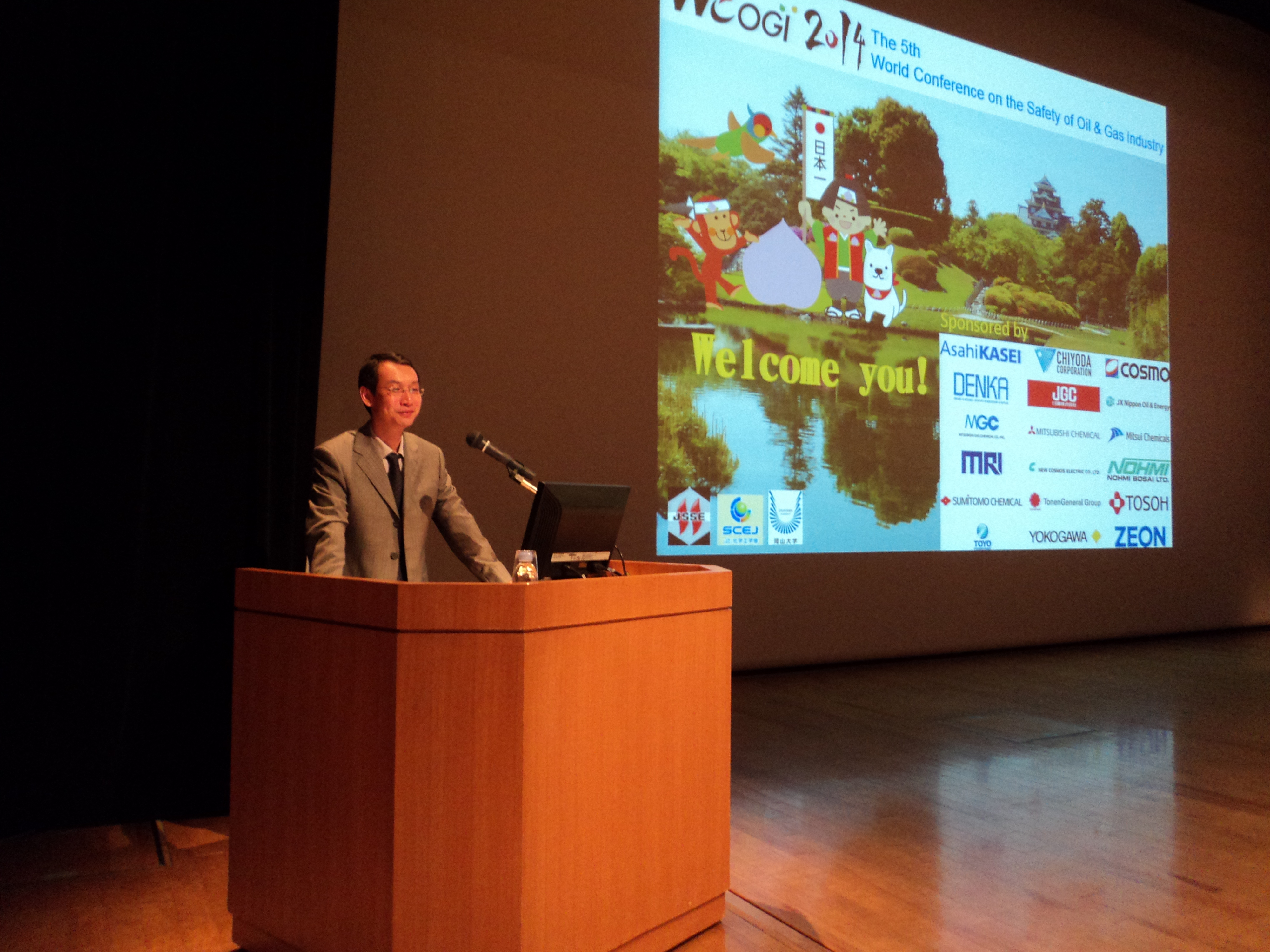Recently, the 5th World Conference on the Safety of Oil & Gas Industry (WCOGI 2014) was held in Okayama, Japan. The conference attracted more than 300 experts and researchers from safety and environment related areas of different countries. They shared opinions and ideas, new research results on the theme of “Safety and Environment for the Future of Energy and Process Industries”. Haiqing Wang, a full Professor of UPC from College of Mechanical and Electronic Engineering attended the conference under the invitation of WCOGI Committee and gave a keynote speech with title of “Determination of Scenario based Individual Risk Criteria and Its Reallocation under LOPA Framework”.

Professor Wang Haiqing gave a report on “Determination of Scenario based Individual Risk Criteria and Its Reallocation under LOPA Framework”.
Professor Wang, as a Alexander Humboldt Scholar (Germany) and the academic leader in the field of safety and engineering science in UPC, has been committed to the research of process safety management, safety instrumented system and reliability engineering and production system. In his speech, based on the individual risk tolerable criterion (RTC) value mandated by Chinese Regulation Code No.40 of the State Administration of Work Safety (SAWS) of China, Prof. Wang proposed a new and structural procedure to obtain Scenario-oriented Individual Risk Tolerable Criterion (SIRTC), i.e., from the statutory RTC of a facility to specified process unit/section and then to a creditable scenario and thus avoid the common mismatch in risk comparison, and the inconsistency caused by empirical apportioning methods.
As an international academic conference, World Conference on the Safety of Oil & Gas Industry(WCOGI)was launched by the government departments and universities related to the oil and gas production safety from the United States, Korea and European countries in 2006. WCOGI is held for every 1 to 2 years in different countries, aiming to strengthening the international academic exchanges and cooperation for oil and natural gas safety science and engineering, promoting the applications of modern safety science and technology in oil and gas industry, improving the establishment of a people-oriented oil and natural gas safety engineering technology system, reducing the oil industry accidents as well as production losses, and finally realizing the essence of security of oil and gas production.
Editor: Bu Lingduo
Source: UPC News Center